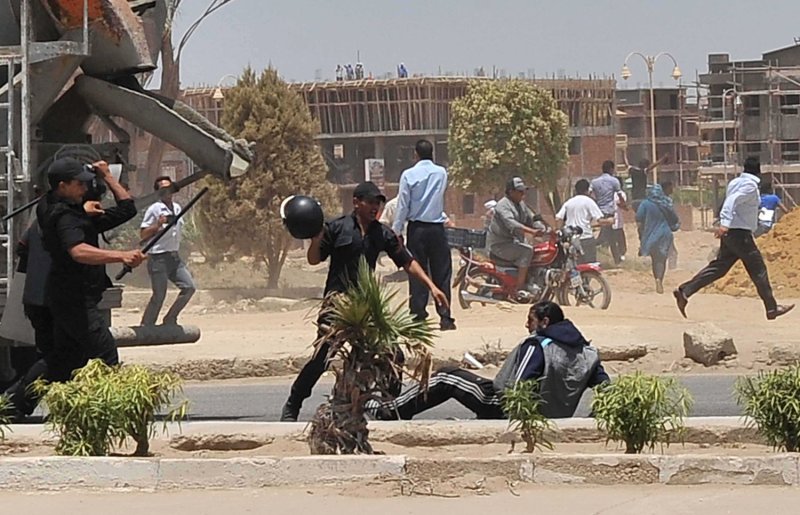Riot police clash with anti-Mubarak protesters after a court sentenced deposed president Hosni Mubarak to life in prison, outside the police academy where the court is located in Cairo, in Egypt, June 2, 2012. Mubarak was sentenced to life in prison for ordering the killing of protesters during the uprising that swept him from power last year. UPI/Ahmed Jomaa |
License Photo
CAIRO, June 14 (UPI) -- Protests erupted Thursday after Egypt's High Constitutional Court declared unconstitutional a law used to elect about a third of the country's Parliament.
Gates surrounding the court in Cairo were locked and citizens were locked inside, Ahram Online reported. Iron barricades used to limit the number of cars and people near the blocked area were closed completely.
The ruling on the country's Political Disenfranchisement Law voided the seats reserved for individual candidacies because those races relied on that law. It left in place a runoff Saturday and Sunday between Mohamed Morsi, head of the Muslim Brotherhood's political arm, and Ahmed Shafiq, former President Hosni Mubarak's last prime minister, Ahram Online said.
The decision, which dissolves the first freely elected Parliament in Egypt in decades, further fueled tensions between the court, which positions itself as a check on Islamists' power, and the once-outlawed Muslim Brotherhood.
The ruling cannot be appealed.
Egypt's military-led government issued a decree Wednesday that reimposed martial law ahead of the ruling.
The ruling -- which critics said amounted to a backdoor coup by the court packed with Mubarak sympathizers -- means whoever wins the runoff will take power without a sitting Parliament and possibly could exert influence over the election of a future Parliament, The New York Times reported.
Observers said the decision also ups the ante in the presidential race, raises questions about the governing military council's commitment to democracy and muddies the future of a constitutional assembly recently formed by Parliament as well, the Times said.
Among those affected by the ruling is Parliament Speaker Saad el-Katatni, a top member of the Freedom and Justice Party who was elected under the individual candidacy system the court declared unconstitutional.















